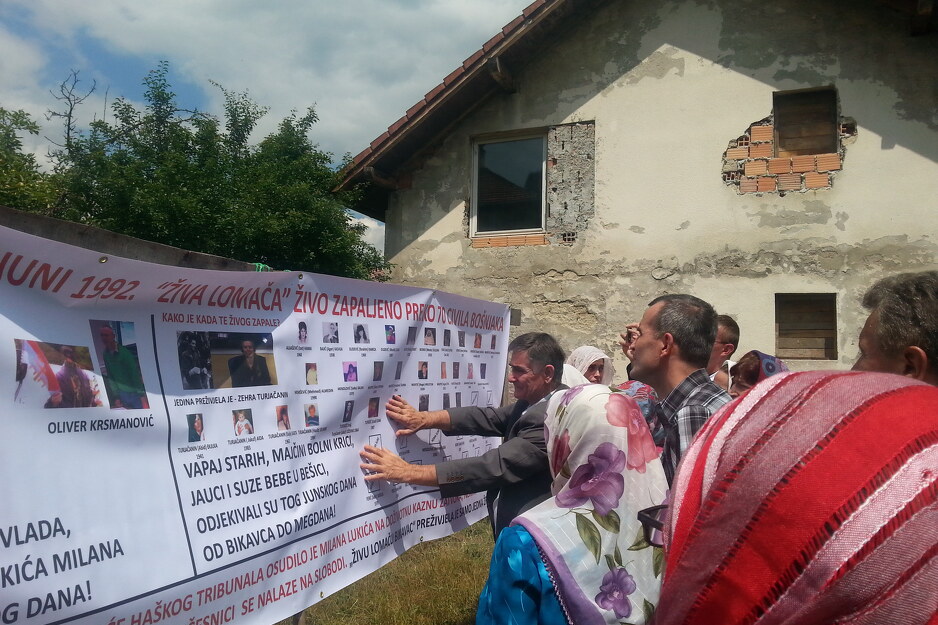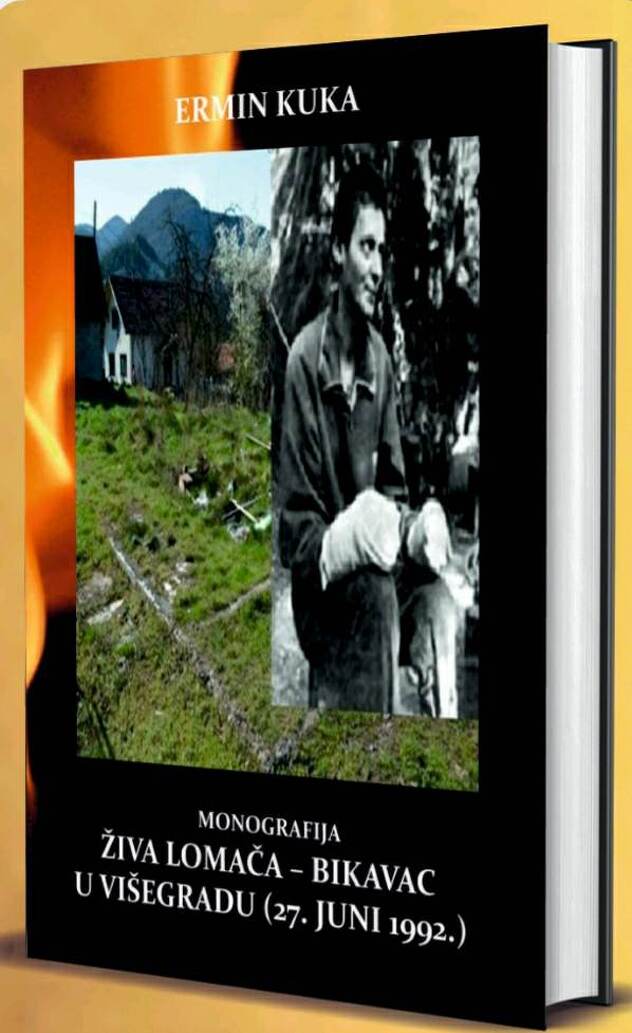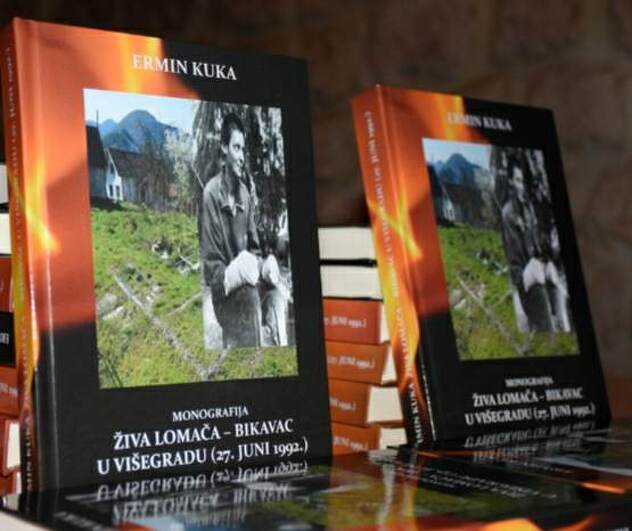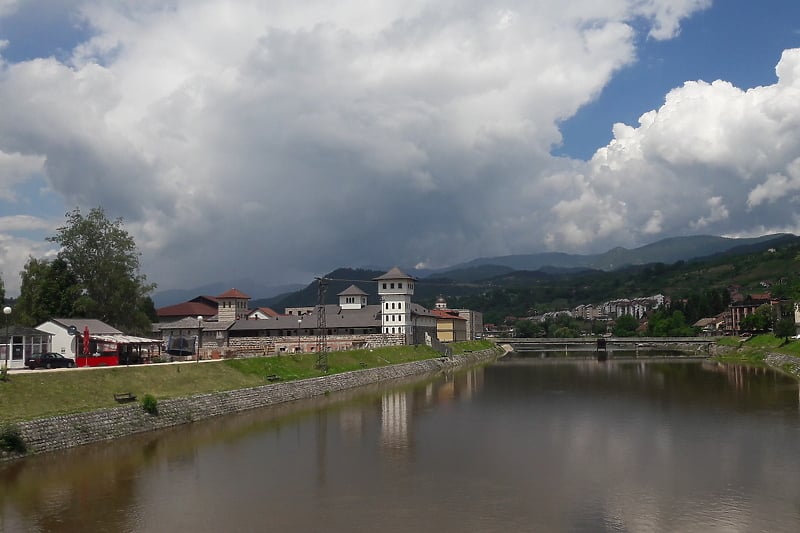This bloody criminal feast was committed 13 days after the monstrous burning of civilians in Pionirska Street in Višegrad, on June 14, 1992. Only one person survived the bonfire at Bikavac, Zehra Turjačanin.
"The crime of burning Bosniak civilians alive in Bikavac, as well as a number of other individual and mass crimes against Bosniaks, are evidence of the genocide committed against Bosniaks in Visegrad and the Republic of Bosnia and Herzegovina. The youngest victim was a one-year-old child, and the oldest was 88 years old. This crime, together with the "live bonfire" in Pionirska street on June 14, 1992, represents one of the most terrible, monstrous and colossal war crimes committed by the Serbian armed forces during the aggression and genocide in the Republic of Bosnia and Herzegovina and one of the most cruel crimes after the Second World War on the soil of Europe", reminds Bakira Hasečić, president of the Association "Woman Victims of War".
Documenting the crime
This year, in cooperation with the author Ermin Kuk, the association published the scientific monograph "Living bonfire - Bikavac in Višegrad (June 27, 1992)", to be a permanent document and reminder of that crime.

Photo: E. A./Klix.ba
Kuka, a senior research fellow at the Institute for Research on Crimes against Humanity and International Law, recalls that Bosniak civilians, women, children and the elderly were brought to the house of Meha Aljić in Bikavac on the eve of one of the biggest Orthodox holidays, Vidovdan. Instead of the promised exchange, a trap was prepared for the victims, and they were completely helpless in the hell that followed.
"Serbian criminals, led by the criminal Milan Lukić, imprisoned 72 Bosniak civilians in the house. Lukić personally asked for as many civilians as possible to be brought to him, and everyone leaving the house was imprisoned. A monstrous crime was committed with the aim of the Great Serbian project of massacre, extermination of mass persecution Bosniaks from Višegrad and the Drina river valley," recalls Kuka.
The perpetrators of the crime first shot at the house, and then threw bombs, and then the inflammable substance that ignited the flames.
"The identity of 45 victims has been established, while no information is known about the remaining victims even 31 years after the crime, except that they were civilians of Bosniak nationality. Most of the victims of the monstrous crime in Bikavac were from Višegrad parish, only from the village of Velika Gostilje 23 people. Mina Vilić (wife of Hamdija) from the village of Prelovo was burned in this house with three minor children under the age of ten (Nihad, Nihad and Zinet). Of the known victims, the youngest is one-year-old Ensar, son of Esad Tufekčić. Esad's five-year-old was also burned daughter Elma. Four children are under the age of two, and a total of 16 children were burned. The oldest victim is Tija Šabanović, who was 88 years old at the time of the burning. The average age of the victim is around 30 years old," says Kuka.
A shameful vow of silence
The next morning, June 28, on Vidovdan, near the burned house in Bikavac, there was a terrifying scene, the remains of the burning, and the air smelled horrible of burnt human bodies. Zehra Turjačanin was the only survivor of this burning. She managed to break a small window on the upper side of the house, get out and save herself from hell. She testified about a horrible crime. She received third degree burns in the fire.

Photo: E. A./Klix.ba
"Such terrible crimes are just a continuation of the cruelty committed against the Muslim population in the Second World War, since even in those tragic times the Chetniks committed numerous crimes. Even then, they imprisoned Muslims in houses, threw hand grenades into them, and then set fire to those houses. In the case of live bonfires in Višegrad, the long-standing shameful vow of silence, both of the perpetrators of this heinous crime, and of all neighbors of Višegrad citizens of Serbian nationality, is worrying. It was impossible to commit such heinous and monstrous crimes of burning, planned and organized, without only a few individuals (perpetrators) knowing for that," believes Kuka.
Only the criminal Milan Lukić was sentenced to life imprisonment for the crime in Bikavac by the final judgment of the International Criminal Tribunal for the former Yugoslavia in The Hague. Sredoje Lukić, as well as Oliver Krsmanović, were not responsible for this crime, because the courts could not establish their presence, even though the Hague Prosecutor's Office, that is, the Prosecutor's Office of Bosnia and Herzegovina, requested that they be sentenced with final force for participation in the said crime.
"It is unimaginable that only one person could commit such a crime, prepare it, organize it in detail and carry it out. The Trial Chamber did not establish, beyond a reasonable doubt, that Sredoje Lukić was also present at the said crime. Also, the Prosecutor's Office of Bosnia and Herzegovina is for this crime burden and the criminal Oliver Krsmanović. However, the finding of the Appellate Panel of the Court of Bosnia and Herzegovina, in the second-instance verdict against the criminal Oliver Krsmanović, is incredible, in which it is stated that "the participation and role of the accused Krsmanović in the whole event has not been fully clarified", says Ermin Kuka.
A voice on behalf of the victims
He adds that the obligation of the survivors is to remember and remember, and to document the crime.
"Because we are here to be the voice of the victim and the voice of the truth. Our memory and reminder is precisely the fight for the truth, as the highest scientific and civilizational value," says Kuka.

Photo: E. A./Klix.ba
The Association "Woman - Victim of War" says that their mission is to preserve such events from being forgotten, with the message that evil should never happen again to anyone, however, that the authorities of the smaller entity of Bosnia and Herzegovina and the municipality of Višegrad are still trying to reject justice in every possible way. to hide the truth and erase the memory of aggression and genocide in Višegrad and the Republic of Bosnia and Herzegovina. They also remind that the remains of the victims have not been found and decently buried even to this day.
Source: Klix.ba

(1).png)
(1).png)